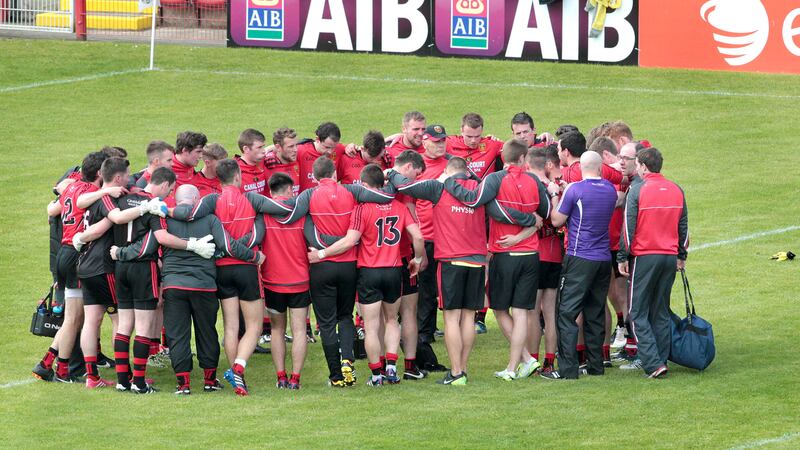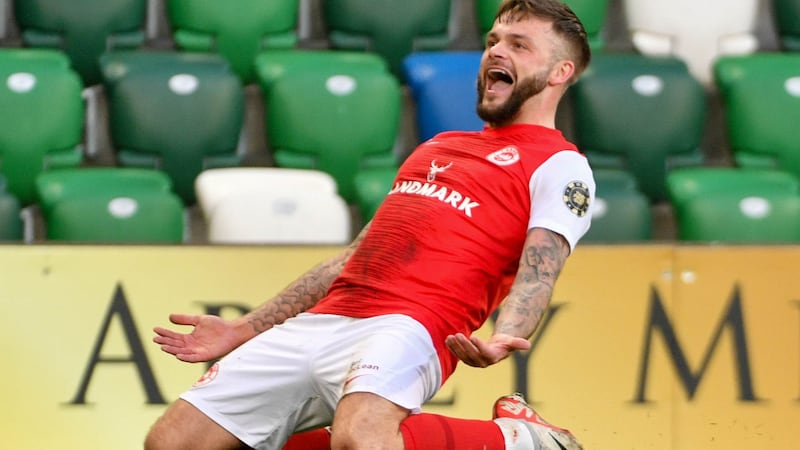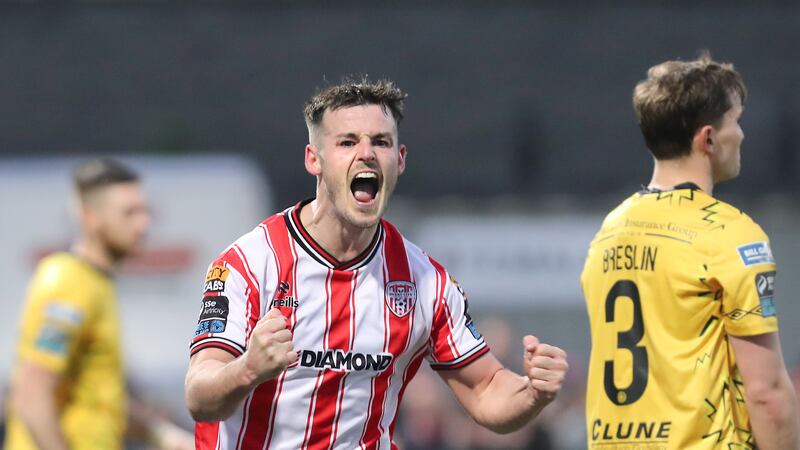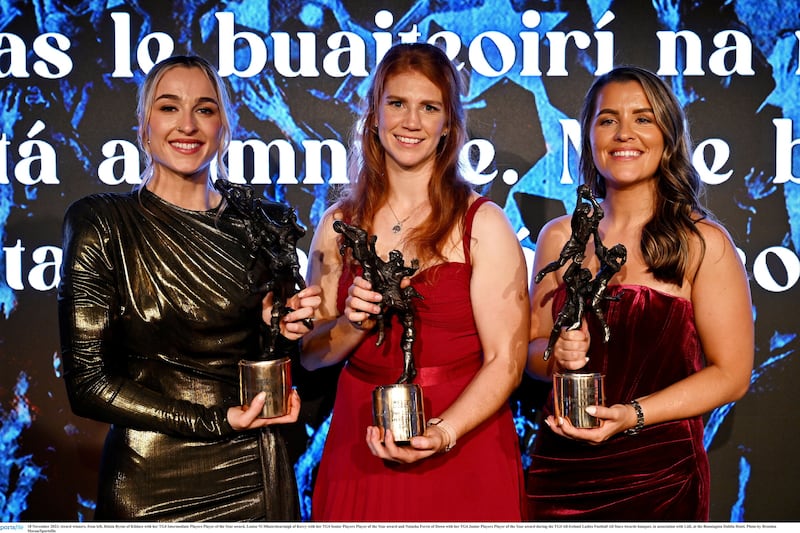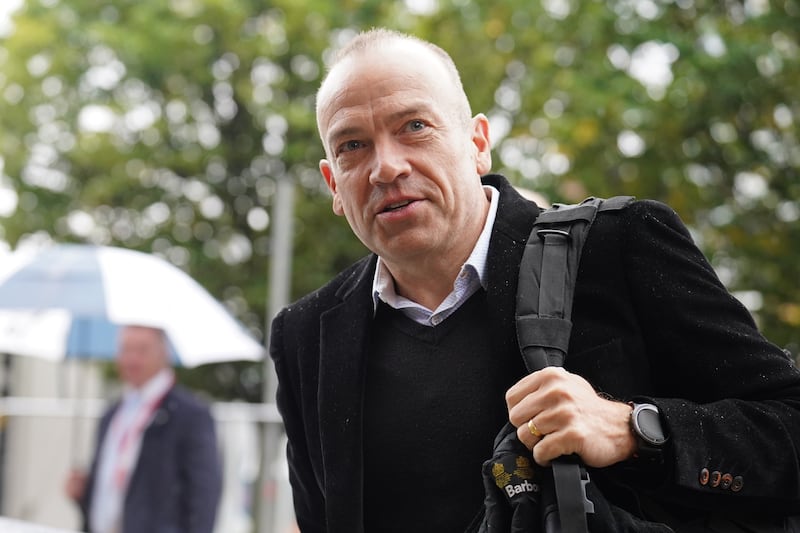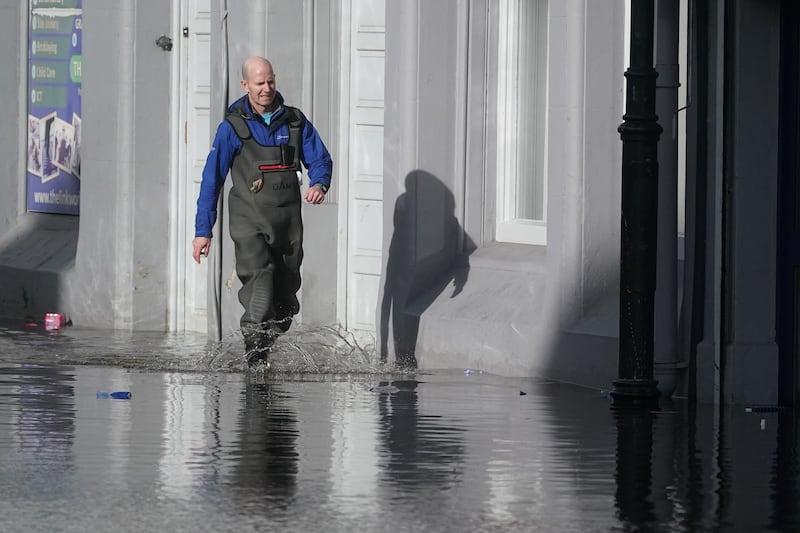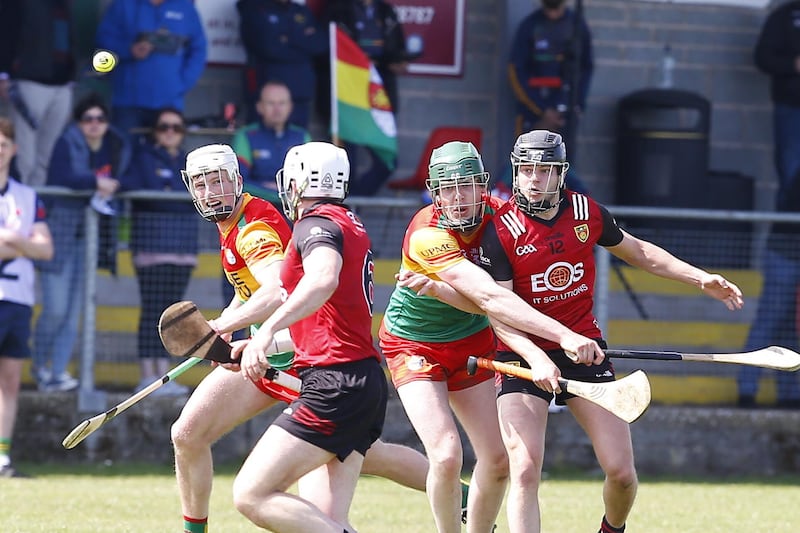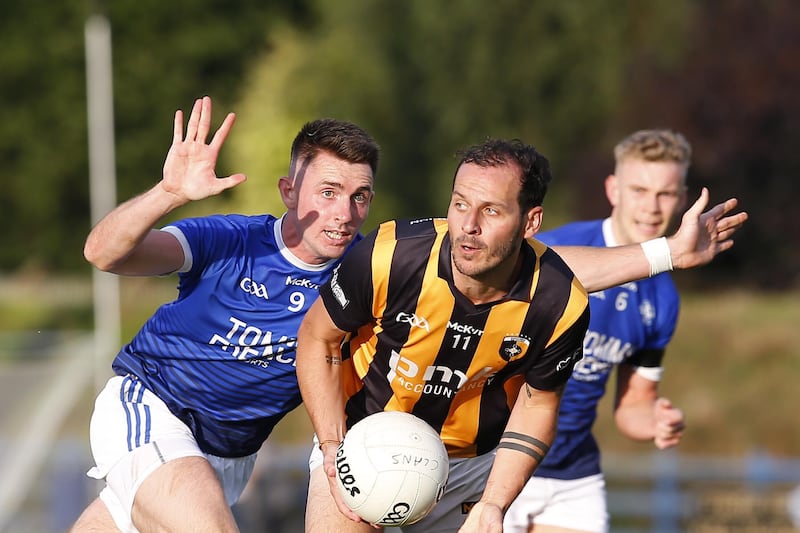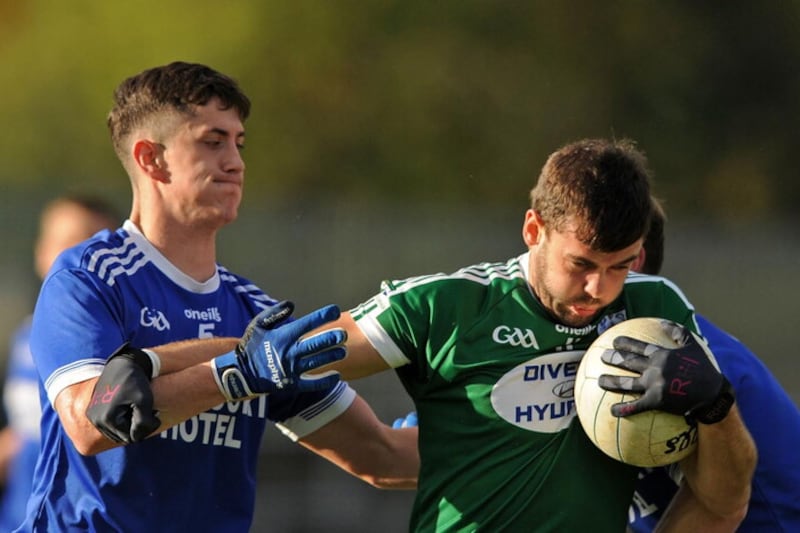LAST Sunday was a sobering experience.
The last time I travelled to Clones as a supporter was to watch the 1999 minor team win an Ulster title. I was jealous of my friends as I was unable to make the size and stature required at that time, quickly learning that willingness and spirit can only take you so far at 17-years-of-age.
Thankfully, my time would come and, following the growth spurt not long afterwards, I used this experience to make me even more determined to play for Down. Playing for Down was my life. It took precedence over everything else. Family, friends, study, work and relationships all paid the price.
It was a price I considered worth paying. To this day, I still think it was a price worth paying. It gave me so many depressing days and, in other moments, a sense of fulfilment where you feel you have achieved something you previously only dreamt about.
I walked through the town of Clones last Sunday, met many friends and supporters who I recalled so loyally supporting me as a player, even when times were not so good. The sun was shining and the day lent itself to Down’s traditional association with the concept of ‘total football’.
Walking through Clones, I also noticed just how much the landscape has changed. Street upon street of boarded up houses, dilapidated buildings and a large number of For Sale signs. I thought of the comparison between Down football and this town that once bustled with energy yet is now a pale shadow.
Lacking foundations, empty and devoid of spirit are just some descriptions which spring to mind for Down football. To lambast the players, though, would be unfair, grossly unfair. It goes much deeper than the players.
Going home after last Sunday’s game, I felt sorry for some of the boys I played with. Mark Poland, Conor Maginn and Darren O’Hagan all deserve much better. They tried really hard and, at times in the first 35 minutes, Down looked well organised and quite fluent.
The referee, though, didn’t help the cause with his performance. While Monaghan went in at half-time three points up, they could easily have nipped in for two goals only for some last ditch tackling which saved Down.
The Mourne men shot wide after wide and, while no goal chances were being conceded by Malachy O’Rourke’s side, they could easily have made the contest closer had the shot selection been more considered.
The Farney men looked flat in the first-half. More worryingly for them, they struggled with their plan A at times, which basically involves getting the ball to star turn Conor McManus. If Monaghan are to progress to where they want to be - at the business end - they need to be more proactive and less reactive to how other teams set up. A full-forward line of Kieran Hughes, Conor McManus and Conor McCarthy would do damage against any team in Ireland and the direct ball - if utilised more - could be much more effective.
Peter Turley’s dismissal didn’t help things either for Down. However, the tide was already turning, the outcome delayed only for a short time and I felt sorry for Henry Brown coming on in those circumstances.
The subs entering the fray made little or no impact and I thought that many of those called ashore were changes made prematurely by management, aside from those enforced by the official. In all honesty, it was a classic case of rearranging the deckchairs on the Titanic, an apt analogy for Down’s current travails.
It would be too simplistic to blame manager Eamonn Burns. In fact, the consensus is that he has inherited a boat which already had a very large hole in it miles from shore. There is no appetite to play county football for a significant number of players who would make the first 15. Why is this?
The answer lies in a combination of reasons. Firstly, they know the desperation to find three different managers in three seasons really tells you where potential managers see us as a county. Secondly, Marty Clarke and Caolan Mooney apparently both opted not to commit for personal reasons.
While Marty stated on the BBC coverage a phonecall was never made to him at the start of the season inviting him onto the squad, I think we are dealing with a more complicated picture. I think that, when any player leaves these shores for professional sport, they become accustomed to certain standards which are perhaps unrealistic in inter-county GAA (outside of Dublin, Kerry and Mayo).
The bottom line is that Marty would be welcomed back with open arms to the county fold, as would Caolan. However, like many other players in the county, maybe they realise the juice is not worth the squeeze at the moment.
Thirdly, Burns, by all accounts, reluctantly took the job when no-one else was interested. The legacy of the Jim McCorry fiasco really gives us an indication of how things are done in the county. Down really needed a high-profile appointment after James McCartan.
Some renewed optimism following a couple of heavy defeats in James’ last two seasons would have been well received. While it would never have solved the problems with the basic foundations, which are not there due to years of neglect, it may well have arrested the decline in the quality leaving or opting off the panel.
The buck stops with the people who run the county - pure and simple. I fear that nothing will change in the future because nothing has changed for many years. The lads on the team and panel who have committed this year, trained and played their heart out to the best of their ability cannot be blamed for last Sunday’s result.
